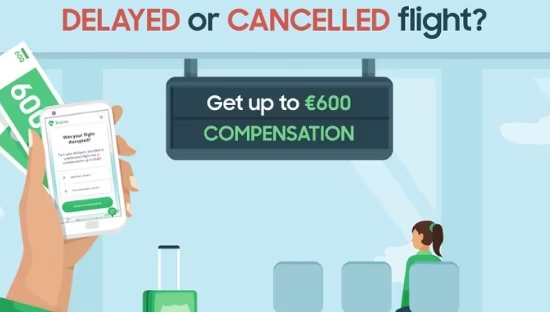
From Stadiums to Sightseeing: What Sports Travelers Are Really Looking For
Fans are willing to go the distance, and sports tourism — where passion meets vacation — presents significant economic opportunities for travel providers. With a strong game plan, you can stand out from the competition and create unforgettable experiences for sports fans. travel for sporting events
Sports tourism creates high-demand periods for transportation and lodging companies and boosts host cities’ economies. In fact, this type of travel now accounts for 10% of global tourism spending, according to UN Tourism. In 2023, it surpassed $560 billion in worth, with projections to reach $1.3 trillion by 2032, according to Skift. With major global events like the 2026 FIFA World Cup and upcoming Olympics in Italy and Los Angeles, the momentum of sports tourism shows no signs of slowing down.
Who Are These Sports Travelers?
To better understand this powerful group of travelers, Expedia Group surveyed over 2,000 people across eight countries who had traveled in the past year to attend a sporting event. These weren’t all die-hard superfans either — they included families, casual supporters, and even travelers who tagged along with someone else going to a game. What connects them all is their willingness to plan entire trips around sporting experiences.
Some key findings from the study:
- 44% traveled internationally for their last sports trip. That jumps to 56% among Gen Z and Millennials — showing just how global sports fandom has become.
- Most sports trips lasted between 2 to 6 days, with about 17% stretching to a full week or more. That’s significant time spent not only at the event but also engaging with the destination.
- Companions matter: Travelers were just as likely to go with friends (35%) as they were with partners (34%) or family (33%). That makes these trips a group affair — and an even bigger opportunity for travel providers to cater to different needs.
 It’s Not Just About the Game
It’s Not Just About the Game
Sure, the match, race, or tournament is the main event — but sports travelers are in it for more than just the final whistle. One of the most interesting takeaways from the study was how much these fans engaged with the broader destination.
Here’s what travelers did outside the event:
- Dining (57%) and shopping (52%) topped the list of popular activities
- Sightseeing (45%) was another favorite, especially among Japanese travelers (60%)
- Relaxation (33%) and historical or cultural activities (26%) also made strong showings, with Germans particularly drawn to the latter
In other words, these travelers are blending their sports excitement with classic vacation behaviors. That makes them a valuable audience — they’re not just coming for the game and leaving; they’re making the most of the trip. travel for sporting events
Where They’re Staying (And Exploring)
Another interesting trend? Sports fans aren’t necessarily sticking close to the stadium.
- While just over half stayed in the event’s host city, nearly half explored beyond it.
- About 30% stayed in popular areas nearby, while 20% went more than an hour away. Another 20% stayed in lesser-known local areas, which is great news for destinations looking to spread tourism beyond city centers.
This kind of behavior opens up doors for smaller towns and alternative lodging options. Whether it’s a cozy inn outside a major city or a boutique hotel in a quieter neighborhood, sports events can bring visibility — and bookings — to areas that typically don’t see as much foot traffic.
The Big Numbers Behind the Trips
Now let’s talk money — because sports fans are bringing plenty of it.
On average, each sports traveler spent over $1,500 on their most recent trip. Here’s the breakdown:
- Accommodation: $480
- Airfare: $420 per person
- Additional activities: $370
- Event tickets: $310
And this isn’t a one-time thing. 84% of those surveyed said they plan to take another sports-related trip in the next 12 months, with over half planning two or more. Their expected spend for those upcoming trips? Over $1,200 each.
That’s a huge revenue opportunity for hotels, airlines, tour operators, and even local businesses.
So, What Can Travel Brands Do?
If you’re a travel provider, sports tourism is not just a wave to ride — it’s a strategy to own. Here’s how to win over these enthusiastic fans:
1. Create Timely, Targeted Deals
Use member-only deals and other exclusive offers tied to event dates to stand out. Fans are already in planning mode — show them why your property or service is the right fit.
2. Boost Visibility During Big Events
Make sure your listings are front and center when fans are searching. Expedia Group suggests using tools like Accelerator to increase visibility during these high-traffic periods.
3. Customize Content for Sports Travelers
Think visuals that feature fans, game day energy, and group experiences. With TravelAds Sponsored Listings, you can tailor your messaging to match the sports vibe and attract travelers looking for that perfect match-day stay.
4. Collaborate with Others
Co-op campaigns are a great way to pool resources with destinations or other brands and amplify your reach. It’s all about getting in front of the right people at the right time — ideally, when they’re in the pre-booking phase.
5. Think Beyond Major Cities
Don’t just market to the host city — market the region. Fans are open to staying and exploring further out. Highlight how easy it is to get to the venue, what makes your area unique, and what activities complement the main event.
The Takeaway about travel for sporting events
Sports tourism isn’t a fringe trend — it’s a driving force in the travel world. Fans are traveling farther, spending more, and seeking deeper experiences beyond the stadium gates. And with mega-events coming up, the momentum is only growing.
For travel brands, now’s the time to step up your game. Understand these travelers, meet their needs, and create packages and experiences that make their trips even more memorable.
Because when passion meets travel, everyone wins.





 It’s Not Just About the Game
It’s Not Just About the Game




